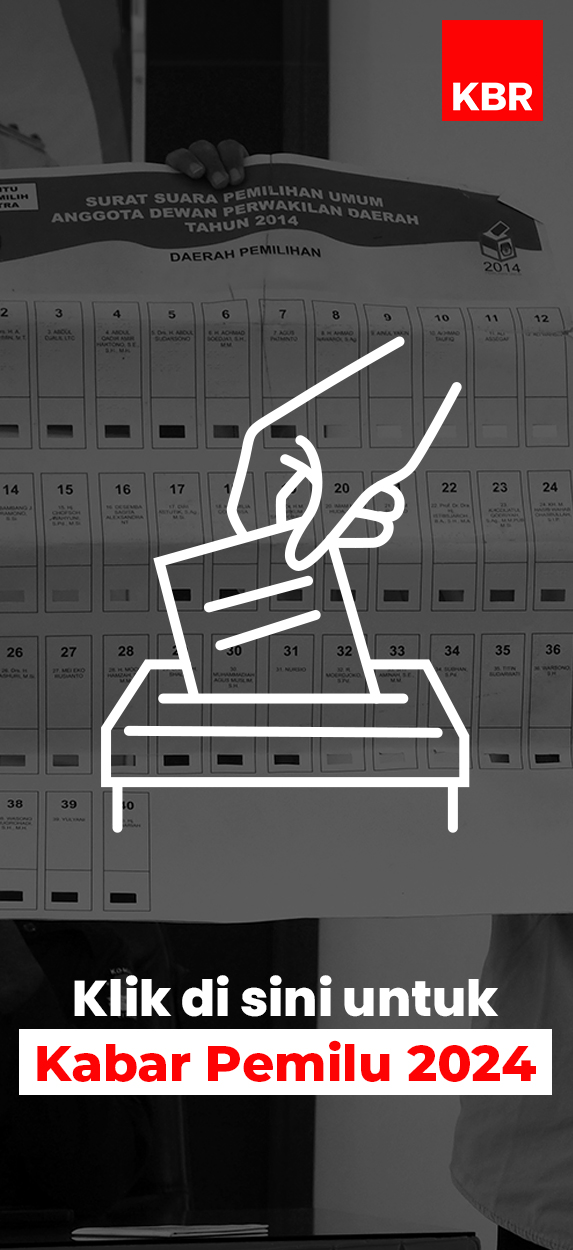A recent report released by Human Rights Watch claims Indonesia is failing to protect religious minorities from growing intolerance and violence. The province of West Java has been particularly volatile, recording an increasing cases of intolerance and violations against religious freedom. There were 57 cases in 2010, and it jumped to 102 cases last year.
A brutal attack on a Sunday church service in Bandung, West Java happened recently.
Dozens of congregation members fled while a group of 40 men from hard-line religious group, the Islamic Defenders Front or FPI, scaled the church gate and destroyed everything in their path.
The attackers, who were wearing black masks, even strangled the church minister with his own necktie.
“I beg you please don’t terrorize us,” says Corry Maukar, the wife of the church minister.
“Please respect us to hold the service. We never hurt anyone; we never made a mistake to anyone, why do they hate us so much. Why would they disturb our church service? They all come from far away; they even brought spears which make us scared. We didn’t know any of them before but now we recognize them, we beg you please don’t disturb us we just want to hold a church service so we can praise the lord.”
This church has been enduring similar instances of violence for over the past two years.
According to the FPI, the church doesn’t have a valid building permit to worship — despite it holding services in the same building for over 26 years.
“So many times it’s happened to us, and lately so many people have come to us asking for money to get a permit and the time,” Corry says. “We spent a lot of money and I even sold my car, but at the end they couldn’t get a permit for us either, they only lied to us.”
Two days after the attack, the church minister was arrested and imprisoned by the district police for defying an order that prohibited him from holding services without a permit.
And it’s not just Christians who have become victims of religious violence within the province.
Earlier this month, around 50 Ahmadis in Bekasi, West Java, were sealed inside their mosque, which was barricaded with a corrugated iron fence erected by administration authorities.
Deden Sujana, the security coordinator for the group, said that local Ahmadis had received several threats before the mosque was closed by officials.
“They cut down the electricity, they even prepared cement, sands, I don’t know what they’re for. And all access to enter the Mosque door has been sealed by the police. They were all blocked and we couldn’t enter the mosque for the Friday prayer. 50 Ahmadis were still inside since last night.”
The Bekasi administration justified shutting down the mosque under the terms of a West Java gubernatorial decree and the 2008 joint ministerial decree that bans members of the Ahmadiyah Indonesia from propagating their religious beliefs.
A recent report released by Human Rights Watch highlights that religious intolerance and acts of violence targeting religious minorities are becoming more frequent within Indonesia.
“The number is in the hundreds every year of churches being closed down, burned down, Ahmadiyah members being attacked, being killed sometimes and the legal infrastructure is getting stronger and stronger in discriminating the minorities,” says Andreas Harsono, Indonesia’s researcher for Human Rights Watch.
“And that is why we are concerned to see this development and why Human Rights Watch decided to do research about this.”
The report also describes Indonesian President Susilo Bambang Yudhoyono as “incosistent in defending the right to religious freedom.”
“What we really do need right now, because this is an emergency, is that the Indonesian government should impose a zero tolerance, zero tolerance against any religiously motivated violence.”
But the government’s spokesman criticised the report as “provocative” and lacking objectivity.
And according to Bahrul Hayat, Secretary General of the Ministry of Religion, the need for a drastic intervention on the government’s behalf is an exaggeration.
“I don’t think it is appropriate to label it as an increase in terms of religious conflict,” he says.
“The second one, conflict is not only related to religion but also other issues. Including the election process in the district and sometimes there is also common issues which are beyond our understanding but it happens in the public now.”
He admits that there are cases of religious violence but he says it’s nothing to be alarmed over.
“Indonesia is a good place to see religious harmony. Of course as I said it’s not a perfect place but I want to say that the achievement is better and getting better from time to time and I want to expect that the maturity of the people is getting better by time.”
But try telling that to members of the GKI Yasmin congregation in Bogor.
Since 2010 the Christian group has been locked out of its own church by municipal authorities. Even two Supreme Court rulings and an order by the Indonesian Ombudsman were denied by local officials who claimed that the community opposed the church.
GKI Yasmin’s spokesperson Bona Sigalingging has been leading regular service demonstrations in front of the Presidential Palace.
“It’s kind of a political game here. It is not about the law aspect it is not about the legal aspect because if we talk about the legal aspect there is nothing that the local government or the national government can do other than execute the Supreme caught decision. Now based on the national law on regional autonomy the president is the one who got the final say about this, following the Supreme Court decision. Now we are waiting for his decision and his movement as the president.”
And do you feel it is likely that he is going to follow something through, I asked.
“Referring to what his statement lately I doubt that he will do that. If there is not some kind of or even a bigger pressure to the government,” Bona says.
With her husband in prison, Corry Maukar has been continuing to hold occasional services in secret locations. But she too has been issued with a warning of imprisonment.
Nonetheless Corry remains hopeful that one day her congregation will soon be reunited without fear of attack.
“I believe as written up in God’s word, that one day we will be able to live together…. And I know that all Muslims are good, my neighbours are very kind and they said as well that the Muslims are not like the FPI, they don’t like them, all Muslims are very kind. When they need help they come and we help them, we’re just like family. The FPI are very embarrassing to them; that are all they said. We are supposed to respect one another, to love one another, to be kind to one another. And same like us; if I need help they come and help.”







